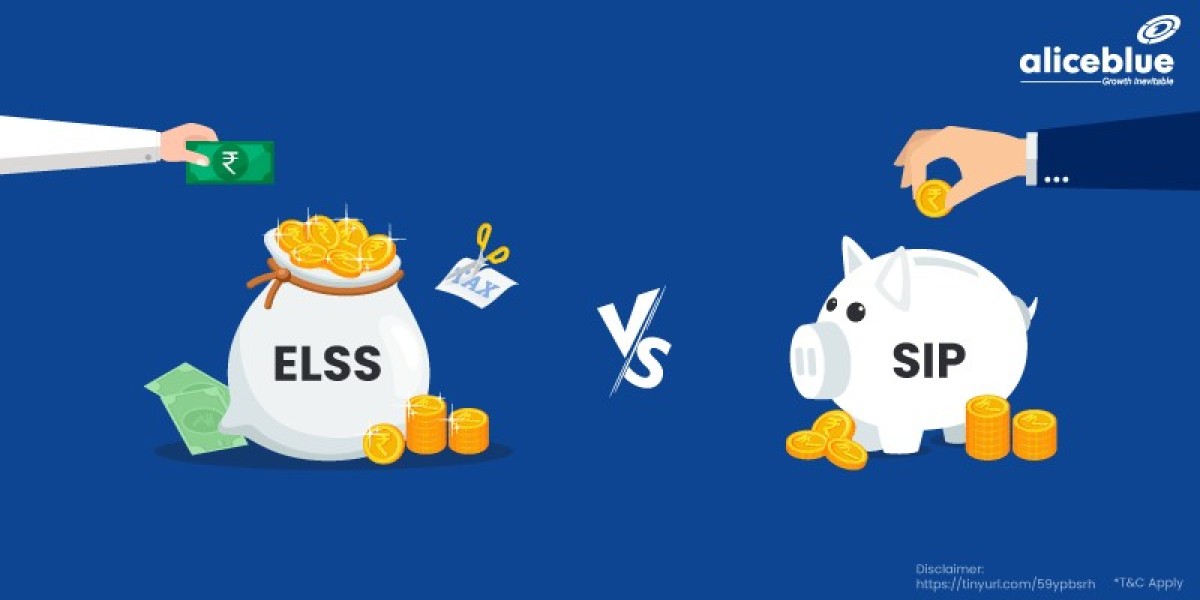When it comes to investing in mutual funds, two popular options in India are Systematic Investment Plan (SIP) and Equity Linked Savings Scheme (ELSS). While both SIP Vs ELSS offer opportunities for wealth creation, they have distinct features and cater to different investment objectives. In this article, we will compare SIP and ELSS to help you make an informed decision based on your financial goals and risk appetite.
SIP: Harnessing the Power of Regular Investing Systematic Investment Plan (SIP) is a disciplined investment strategy that involves investing a fixed amount at regular intervals in a mutual fund scheme. Here are some key features of SIP:
Rupee Cost Averaging: SIPs allow you to benefit from rupee cost averaging. By investing a fixed amount regularly, you buy more units when prices are low and fewer units when prices are high. Over time, this strategy can help smooth out market fluctuations and potentially enhance your returns.
Flexibility and Convenience: SIPs offer flexibility in terms of investment amount and duration. You can start with a small investment and increase it gradually. Additionally, many mutual funds offer the convenience of auto-debit facilities, making it easy to automate your investments.
Disciplined Approach: SIPs encourage a disciplined approach to investing. By committing to regular investments, you avoid the temptation to time the market and make emotional investment decisions. This disciplined approach can help you stay invested for the long term and benefit from the power of compounding.
ELSS: Tax Benefits and Long-Term Wealth Creation Equity Linked Savings Scheme (ELSS) is a type of mutual fund that provides tax benefits under Section 80C of the Income Tax Act. Here are some key features of ELSS:
Tax Savings: ELSS investments are eligible for a tax deduction of up to Rs. 1.5 lakh under Section 80C. This makes ELSS a popular choice for individuals looking to save taxes while potentially earning higher returns compared to traditional tax-saving instruments.
Lock-in Period: ELSS funds have a mandatory lock-in period of three years, which is the shortest among tax-saving investment options under Section 80C. This lock-in period encourages a long-term investment horizon, allowing your money to grow and potentially generate higher returns.
Potential for Capital Appreciation: ELSS funds primarily invest in equity instruments with the objective of long-term capital appreciation. By investing in a diversified portfolio of stocks, ELSS funds provide the potential for wealth creation over the long run. However, it's important to note that equity investments are subject to market risks.
Choosing Between SIP and ELSS:
Investment Goals: Consider your investment goals and time horizon. If your objective is long-term wealth creation and you have a higher risk tolerance, SIPs in equity funds or ELSS funds can be suitable. If tax savings are your priority, ELSS funds offer the additional benefit of tax deductions.
Risk Appetite: Assess your risk appetite before making a decision. SIPs in equity funds and ELSS funds are exposed to market volatility. If you are comfortable with market fluctuations and have a long-term investment horizon, these options may align with your risk appetite.
Tax Planning: If tax planning is a significant consideration, ELSS funds provide the dual advantage of potential tax savings and long-term capital appreciation. Evaluate your tax-saving requirements and choose accordingly.
Conclusion: SIPs and ELSS funds are popular investment strategies in India, each with its own set of advantages. SIPs provide the benefits of rupee cost averaging, flexibility, and a disciplined investment approach. On the other hand, ELSS funds offer tax benefits, a shorter lock-in period, and the potential for long-term wealth creation through equity investments. Consider your investment goals, risk tolerance, and tax planning requirements to determine which option suits you best. It's always advisable to consult with a financial advisor to make well-informed investment decisions.








